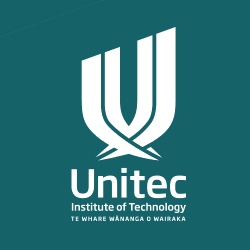
Addressing racial equity & justice in the tech sector for Pasifika learners in Aotearoa New Zealand
Status
Key Research Questions
How effective are IT programmes delivered by Pasifika for Pasifika at: bridging the gap of equality, fairness and inclusion for the marginalised in the tech sector; and addressing systemic racism to identify the potential for inclusive policies for STEM educators?
How are Industry sponsored partnerships that uplift educators’ capability via micro credentials influencing educators to research pathways to postgraduate studies?
This project is scheduled to be completed in 2025.
Sub questions
- To what extent do IT programs delivered by Pasifika for Pasifika contribute to reducing disparities in the tech sector for marginalized individuals?
- How successful are IT programs in fostering greater inclusion for marginalized groups in the technology sector, with a focus on the Pasifika community?
- What is the role of Pasifika-led IT programs in promoting equity within STEM fields and addressing historical and structural biases?
- In what ways do industry-sponsored partnerships contribute to sparking interest in postgraduate studies among educators?
- What factors differentiate capability uplift from improved user outcomes and how do they impact broader educational pathways, especially postgraduate studies?
- How do industry partnerships impact postgraduate pathways, enhancing capabilities, and improving outcomes for users?
Team

Daisy Bently-Gray
Project Leader | General
Unitec | Te Pūkenga
Dr Marion Muliaumaseali’i
Project Leader | Technology
Unitec | Te PūkengaDr Evangelia Papoutsaki
Research Support
Status
Funding
$102,531.00 (excl GST)
How will answering these questions help?
Pacific peoples in NZ engaged in tech education, pathways, and careers represent an underwhelming minority of less than 3% (Chiang, 2022). Although Pacific participation in tertiary education is increasing, success rates and those participating in the IT field continue to be a focus for improvement.
Multiple initiatives involving various agencies including government, education, community, and the private sector have been developed and aimed at improving Pacific participation and success in tertiary, and the Information Communication Technologies (ICT) sector to improve the livelihood of Pacific families, communities, and NZ society. Though some successes have been achieved, much more needs to be done to ensure more Pacific peoples engage and are successful in education and in the ICT space (Bentley-Gray 2022).
This Pasifika centric project demonstrates its intention to do “much more” in the ICT space for Pasifika by employing Pasifika researchers who, despite proximity to, or experiences of exclusivity, were able to traverse the social and economic barriers to higher education. Their lived experiences, shaped by cultural pride and knowledge, brings context to how Pasifika ideologies and methods are relevant in academia providing insights and solutions for Pasifika and by Pasifika.
The concepts Pacific and Pasifika will be used interchangeably to refer to peoples of Pacific heritage in this project.
Expected Outcomes
As Pasifika researchers tasked to measure and evaluate the outcomes of this project; our main objectives are to understand the effectiveness of IT programmes created from partnerships between the Tech Industry, Education providers and community to increase participation of Pasifika educators and youth of Aotearoa NZ in the technology sector.
We want to know if staff who serve predominantly Pasifika and Māori students, accredited with sponsored micro-credentials, experience the following:
- Due to the training, the identified educators can see marked improvement in their delivery of the curriculum.
- The identified educators are inspired to pathway this new knowledge towards postgraduate studies.
- Pasifika students respond favourably to future proofing initiatives in IT delivered by these upskilled educators and how this new knowledge and skills impacts how they see their future prospects.